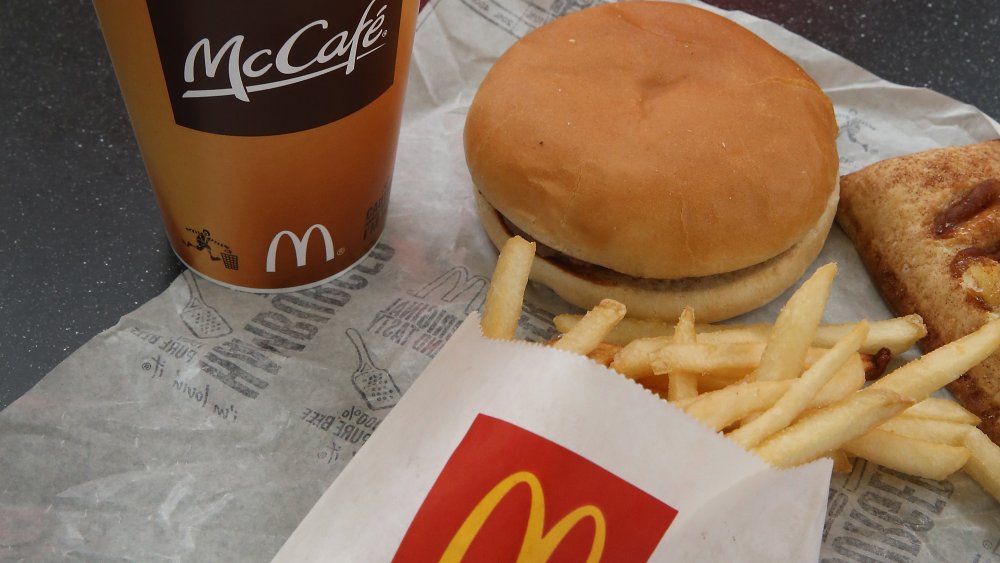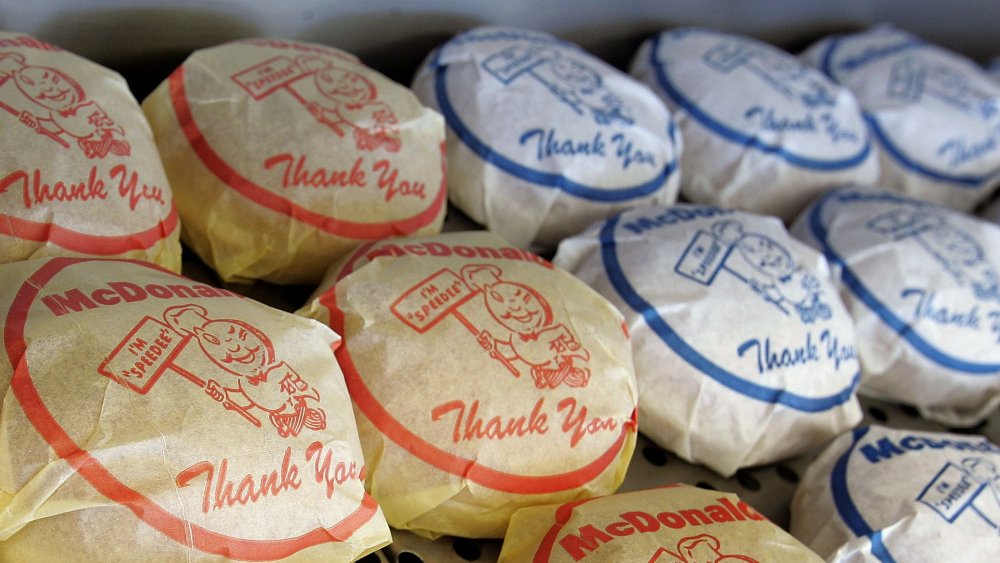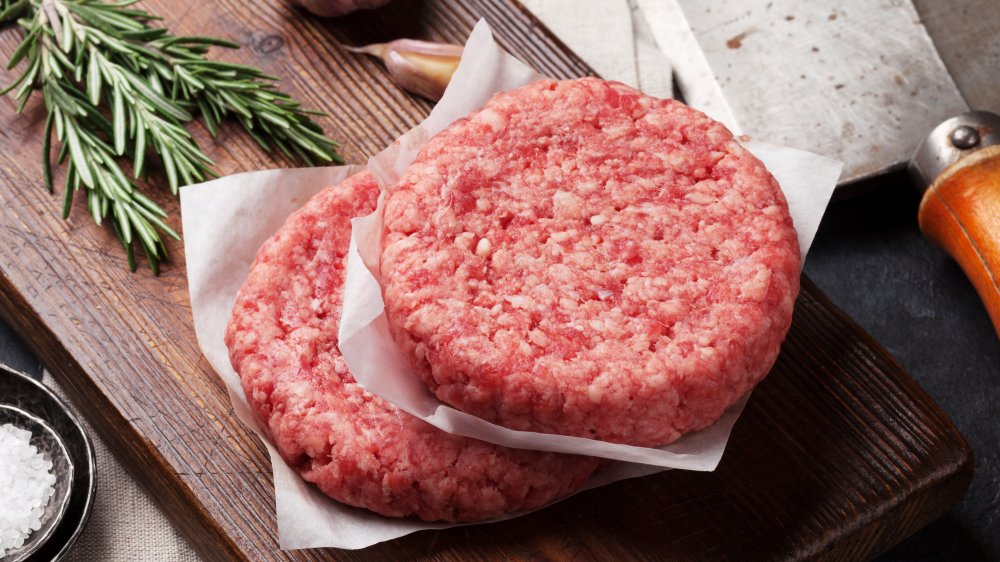This Is Why McDonald's Burgers Don't Rot
Over the years, we've picked up a laundry list of reasons why McDonald's shouldn't be something we can legitimately consider a proper meal. We've been told Its menu items are loaded with sodium, fat, cholesterol, sugar. It once used "pink slime" (processed beef trimming used as a filler for meat products, per Live Science) and preservatives to make burgers, McNuggets, sausage patties, and scrambled eggs (via Showbiz Cheat Sheet). The company used chicken that contained antibiotics. McDonald's has since committed to eliminating artificial preservatives and antibiotics from its products. It also started using fresh beef and introduced healthier sides.
But while McDonald's has doubled down on promises to make its food healthier, many of us are still haunted by stories about the ability of McDonald's hamburgers to defy age and time. They've gone for days, weeks, and even years without decaying. To see what would happen, Icelandic anthropologist Hjörtur Smárason even bought a burger from the country's last Mickey D's in 2009 to see what would happen to it if it didn't get eaten (via Today) and set up a live feed for people to see for themselves.
But McDonald's says there is a reason for that, and its explanation is actually backed by food science.
There scientific reason why McDonald's hamburgers don't rot
Serious Eats' Kenji Lopez-Alt says McDonald's burgers don't rot for the same reason saltine crackers, beef jerky, dried beans, or other shelf-stable foods that we consume stay edible: they're all dried out. He explains that because the patties are small and thin, they have a high surface area but are low in volume. These patties are then cooked over high temperatures and in food-safe environments until they are well done, so its burgers start off with few – if any – organisms that can cause decay.
Lopez-Alt also notes that this indestructibility doesn't apply to Mickey D's other burgers (think Quarter Pounders), which will grow mold before they dry out – likely because these burgers are bigger. Storing a McDonald's burger in a ziplock bag will also trigger mold growth because the bags retain moisture after they have been sealed.
Homemade burgers can be mummified, too
McDonald's offered a very similar explanation in a blog post, saying: "In order to decompose, you need certain conditions – specifically moisture. Without sufficient moisture — either in the food itself or the environment — bacteria and mold may not grow and therefore, decomposition is unlikely. So if food is or becomes dry enough, it is unlikely to grow mold or bacteria or decompose."
You could take McDonald's word for it, or you could choose to believe Lopez-Alt, who sacrificed several homemade burgers to test his theory. Science Notes says you're even able to replicate this experiment at home – if you're willing to waste a burger or two, that is. If you're making burgers from scratch, you'll want to keep your burger patty thin, plain, and simple. And remember that if your burger has been sitting around for a few days, just because it doesn't look like it's changed much – if at all – it doesn't mean that it is edible.


